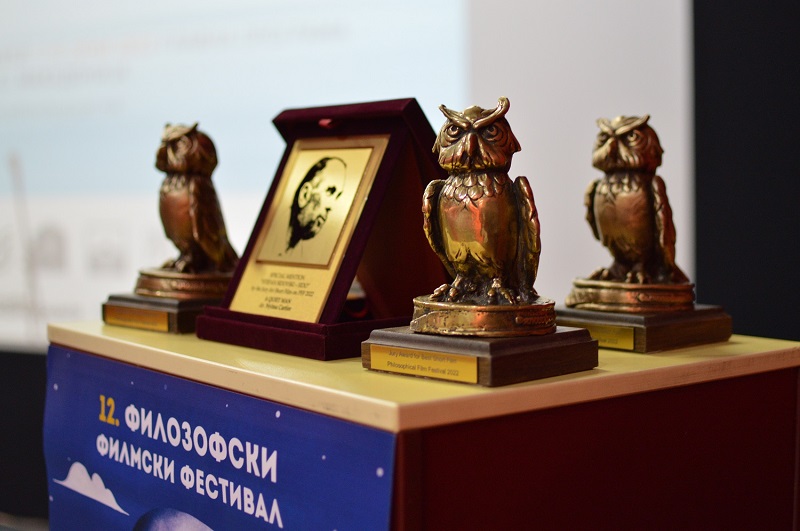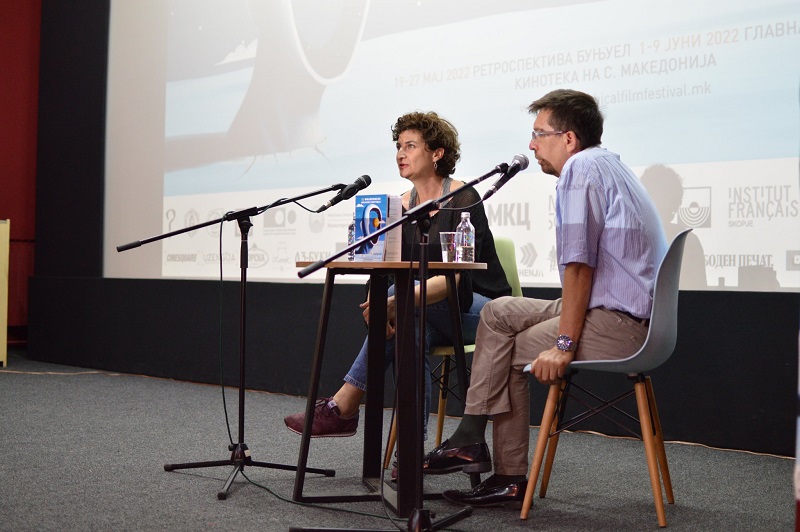Finished 12. Philosophical Film Festival

The closing of the 12th edition of the Philosophical Film Festival took place at the Cinematheque last week, during which the organizers together with the representatives of the expert jury awarded the prizes for the best films according to the jury and the audience.
The Golden Owl Award for Best Short Film according to the jury went to Donija Badir's "Warsaw". The special award "Stefan Sidovski - Sido" for a short film was awarded to the film "The Silent Man" by Nima Karti, while the best short film according to the audience was "Branka" directed by Akosh K. Blacksmith.
"Golden Owl" for best feature film according to the audience was awarded to "After Love" by Alem Kahn, and for the best feature film by the jury was selected "Clara Sola" by director Natalie Alvarez Messen.

- In the symbolic language of magical realism, the film impressively depicts Clara's struggle for self-determination, in which her experience of nature is central. Hence the source of the philosophical significance and poetic novelty of this film: deep empathy with all living things - says the explanation of the award.
The awards ceremony was followed by a screening of the Turkish film "Something Useful" by director Pelin Esmer, winner of numerous awards for best film, director, camera and actress at international and national festivals in Turkey.

The screening was followed by the expected dialogues with the director Pelin Esmer and prof. Serdar туztürk from Turkey, where for the first time a direct connection was made between philosophy and film. The audience joined the discussion, followed by comments, questions, analysis of the film and the points that emerge from the philosophical threads in it.
The movie "Something Useful" follows the story of Lejla, a 42-year-old lawyer and poet, who reluctantly goes to a meeting with high school friends. On the train to Izmir, he meets Kanan, a 21-year-old medical student who dreams of becoming an actress, despite the different wishes of her family. As the conversation deepens, Leila learns that Kanan is carrying a huge burden as she goes to help 45-year-old Yavuz commit suicide because he is paralyzed and unwilling to live. At the end of the all-night ride, Leila decides to join Canaan on her difficult visit.
The debate raised questions about the philosophical approach of the film, which deals with deep questions: about one's own choice, about the joy and care in connecting with a new person in life, but also about the importance of art in difficult moments of life.
"Mirrors and shadows are present in the film, and this is not a coincidence: according to Plato's teachings, we know that in order to reach the truth, we must be able to see through the shadows," Ozturk said.
- I chose Canaan because she is young, she knows what she is doing and she decided to do it. The film does not show how one thinks and hesitates. There are times when he wants to get off the train. He still has a chance to choose a new life. Or not? "We do not know," Esmer said during the debate.
(The text was published in TV and Film Press on June 17, 2022 in the newspaper "Free Press")


